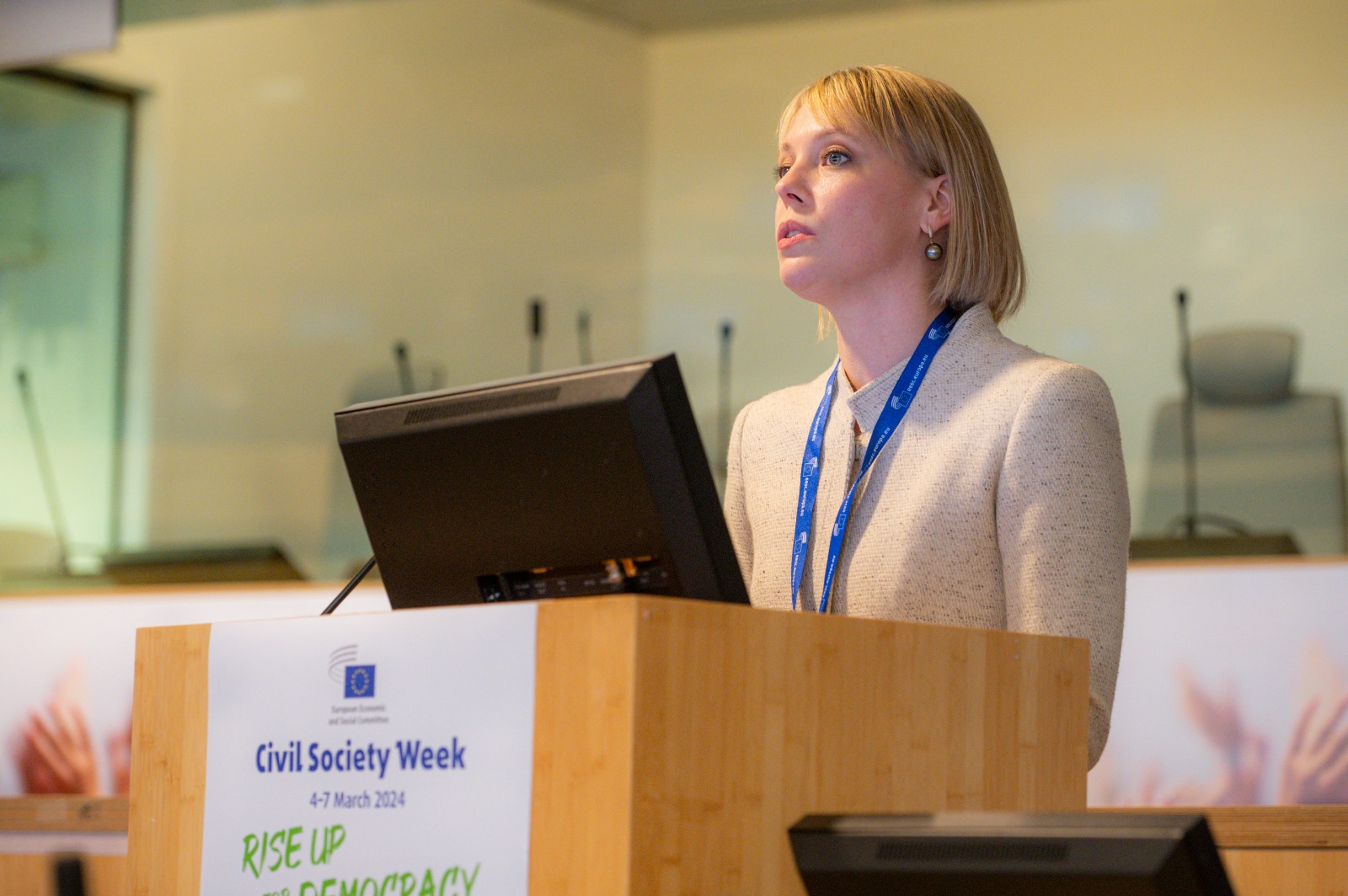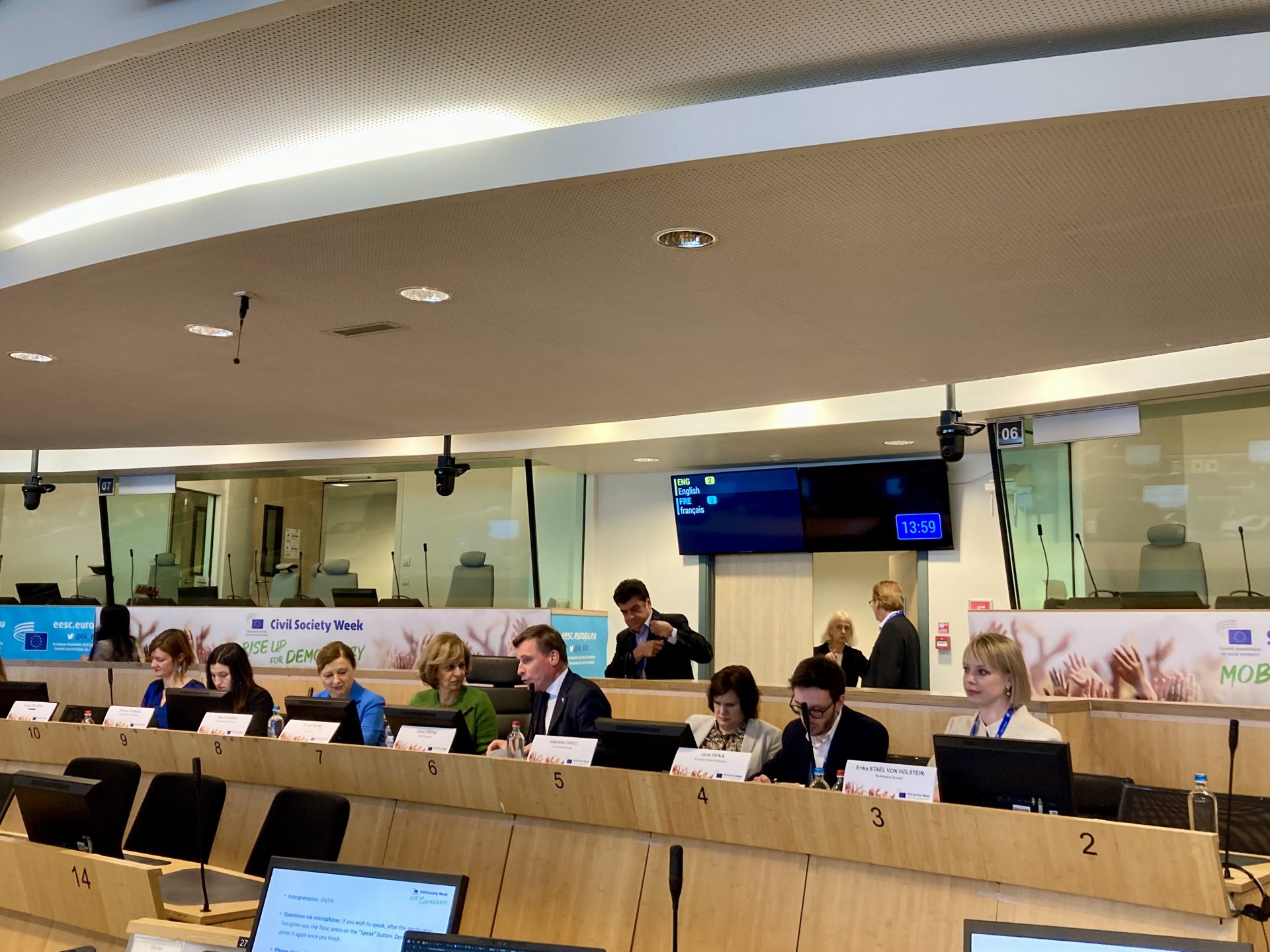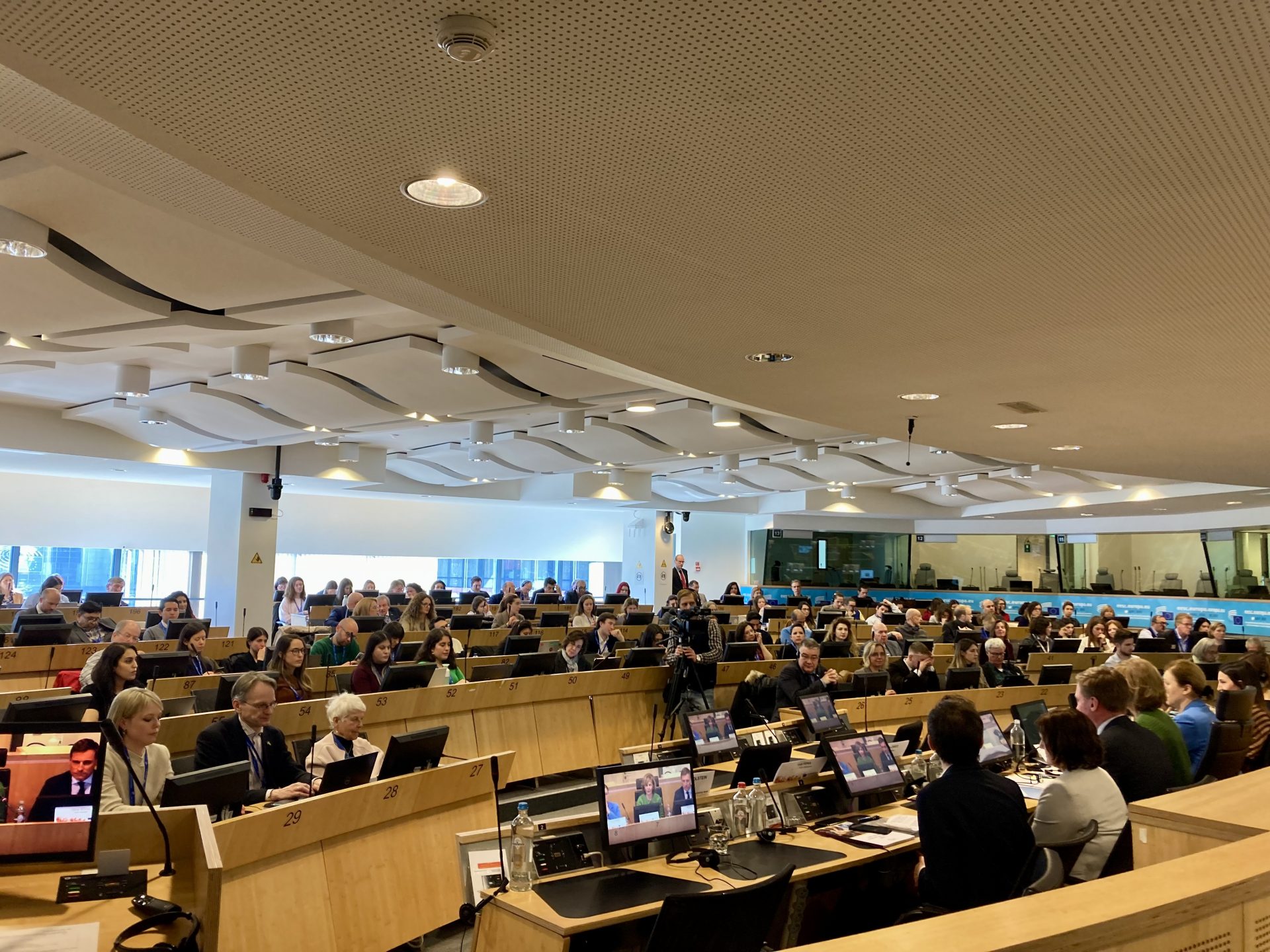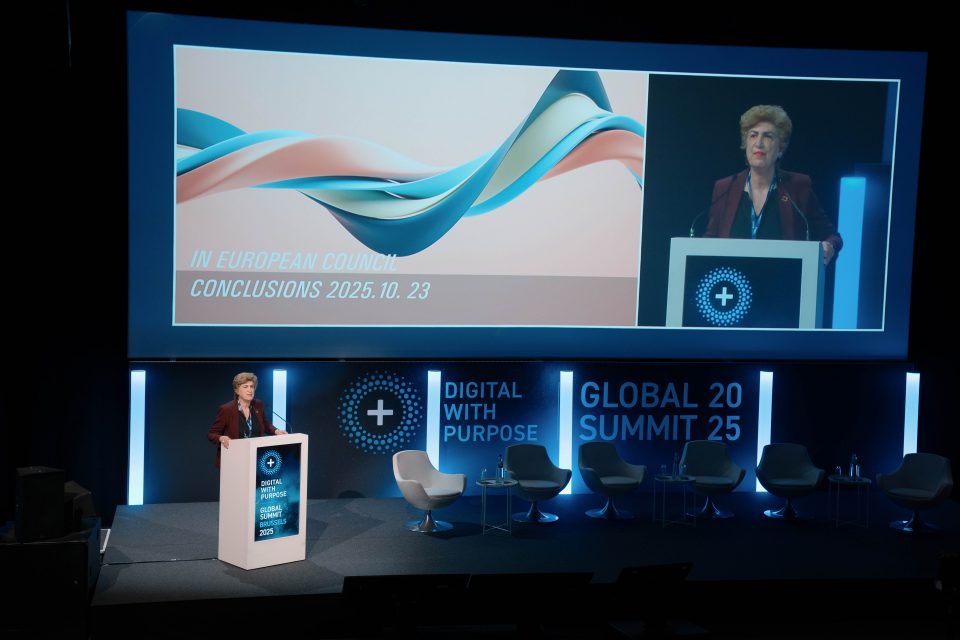“In an era of almost permanent and multiple crises where our democratic fabric is under serious challenge, ‘Rise up for Democracy’ isn’t just a theme; it’s a call to action”. On March 6th, Erika Staël von Holstein, Chief Executive at Re-Imagine Europa, delivered the keynote speech at the opening sessions of the Civil Society Week, organised by the European Economic and Social Committee.
RIE’s Chief Executive started her intervention by addressing the main paradox of our time. On the one hand, the necessity to reimagine and adapt to a digital transformation. On the other hand, the rhythm of change in this global highly mobile world is causing many citizens to struggle in keeping the pace. “We are not adapting as well and quickly as we need to the changing world and the very real problems are not being addressed”. The negative emotions, exacerbated by the attention-grabbing approach of the social media ecosystem, lead to social fragmentation and political stalemate. These fundamental changes feed existential fears and anxieties and lock us in a cycle of distrust, exacerbated by an ever-growing polarisation. “Polarisation has become a major issue of our time. It is such an effective tool to block any progress that it is being weaponized – very effectively – by actors who prey off a dangerous status quo”.
This environment makes it impossible to work together and implement the deep changes required to bring our societies back together again and face the future with hope. “Unless we break the cycle of distrust, the pre-eminence of democracy as the most effective political system developed by mankind is in real peril”.
Re-Imagine Europa’s CEO introduced the audience to Wladek, a fictional character, to showcase the consequences that arise when people’s real problems are not addressed in an effective way: “Ten years ago, Wladek lost his job at the coal mine in Poland. He feels humiliated and disempowered. He blames environmentalists and their ‘Green Deals’ for all his plight and feels drawn to anti-climate protests where he feels a sense of community and kindred spirit with people in his exact same situation”. He is not alone. In fact, “today 40% of Europeans recognise themselves as climate-sceptics. But, as with Wladek, for a big majority it has little to do with climate science. It has to do with fear, anger and despair”.
To be able to address our biggest societal challenges it is important to stop tilting at windmills and “start listening not only to what is said, but also to what it is meant”. Engaging citizens in the discussions and the civic debate. This is where Civil Society Organisations have a key role to play by giving citizens the opportunity and the platform to participate. “We need to move beyond trying to “win” and convince others we are ‘right’, to creating the conditions to have honest, open and respectful conversations. Especially when we disagree.”
The same methodology was used in South Africa by Nelson Mandela to change the conversation with the hitherto ruling White Afrikaners. Mandela tried to understand why the Afrikaners were so resistant and quickly understood that it was not about racism or stupidity. It was about fear. So, the way forward was to change the conversation, to acknowledge their fear and address it.
Ms Staël von Holstein instigated the participants to “learn how to listen and reframe, how to challenge our own ideas and be ready to improve them together with others”. That is the biggest strength of democracy, to allow diversity of views to be represented and listened, “to celebrate that we will be able to find smarter solutions because we do not share the same opinion”. “If we can channel all the energy currently in the public sphere away from the polarised situation we have today and reverse the cycle of distrust we can move from Peril to Prosperity.”






